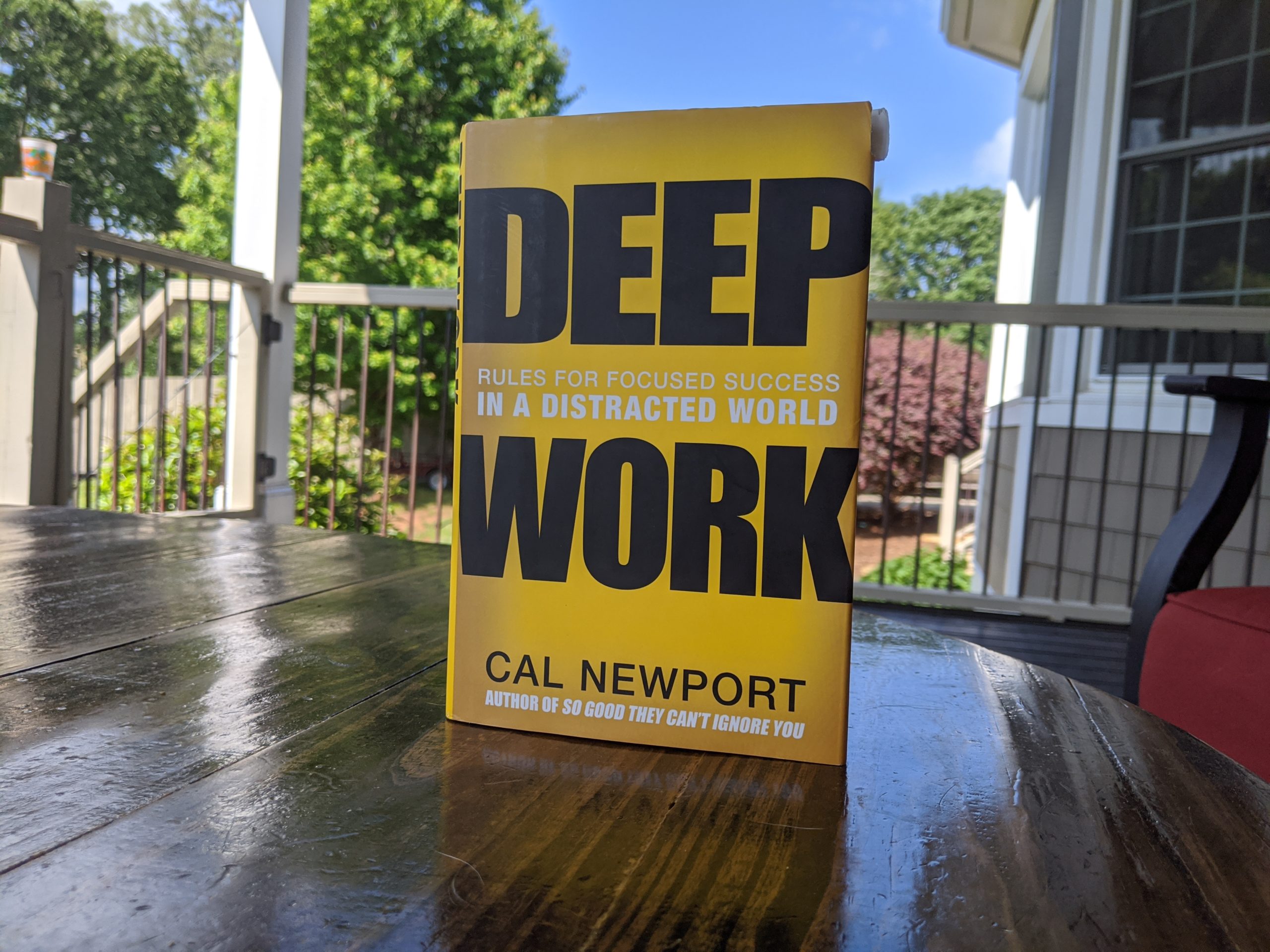I just finished reading Deep Work by Cal Newport. If you’re a knowledge worker driven to maximize your effectiveness and efficiency, you should check it out.
Newport’s Work is Practical
I’ve read two other books by Cal: Digital Minimalism and So Good They Can’t Ignore You. The thing that you get with Cal is dead-simple application. In the books I’ve read, Cal makes the application of the content extremely clear.
He doesn’t present an idea and then leave you to figure out how to apply the idea. He tells you exactly what how he suggests applying that idea in your own life.
I find this down-to-earth approach to be very helpful. However, I can also see how some might find it a bit on-the-nose if they prefer big ideas over tactics. If you prefer theory over application, Cal’s probably not who you’re looking for.
Deep Work is Valuable
The basic premise of the book is that the modern knowledge worker–basically anyone who works at a desk or otherwise does most of their work on a computer–is under constant pressure to engage in shallow work.
Shallow work is simple, transactional work that doesn’t create any tangible value and can be completed in a state of distraction. Shallow work includes the everyday minutia of modern knowledge work:
- Answering email,
- Attending most meetings (depends on the meeting),
- Data entry, filling out forms and surveys.
In the book, shallow work is contrasted with deep work.
Deep work is complex or difficult work that requires expertise or specialized knowledge, requires (or is improved by) intense concentration, and creates value.
By nature, deep work tends to be highly specialized based on the field any given individual is in. In my case, as a business management professional, deep work might include:
- Writing or planning a particularly tricky piece of communication,
- Planning and conducting a 1-on-1 meeting with someone in the company to discuss something of deep importance,
- Creating a communication strategy to ensure a new policy is well-explained and understood by every member of the company, or
- Determining how to stack-rank departmental priorities and plan the completion of the key steps needed to achieve those priorities.
The book posits that a variety of trends, mostly brought about by advancing technology, are causing shallow work to crowd out deep work. Further, Cal theorizes those who can reclaim their schedule and routinely engage in deep work with be the most productive individuals within any given discipline or field. Finally, the book presents a wide variety of specific strategies that the author has deployed (and suggests you deploy) in the pursuit of depth.
My Own Deep Work Strategy
Deep work is something I struggle with. I know it’s important, but my work responsibilities are not particularly conducive to entering a deep work state (something I’ve written about before). I’ve deployed a few different strategies, including the scheduling of deep work sessions and the development of a deep work ritual.
There’s still a lot of ground to cover. I have found the intentional pursuit of deep work to be a valuable pursuit. It’s been very difficult to stick to it, but I’m committed to finding way to consistently use deep work as a way to excel at the most important parts of my professional life.
